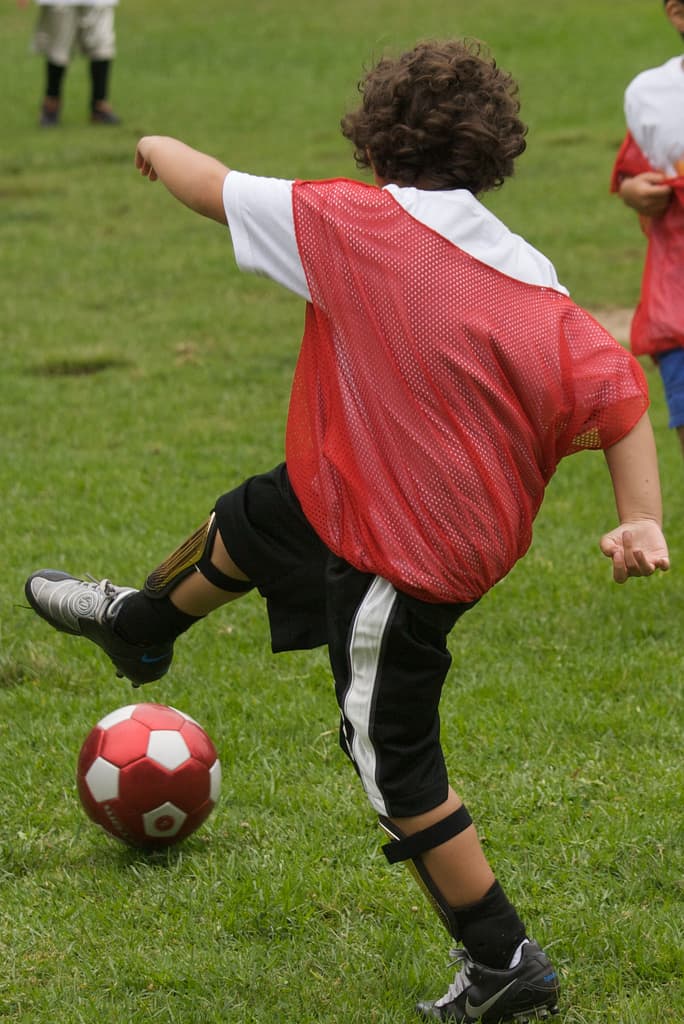Advertisement
Why To Exercise Today: It May Make Bullied Adolescents Feel Less Suicidal
How much better can exercise make you feel?
A new study suggests that the mood boost may be profound.
The nitty gritty of the study is that researchers at the University of Vermont report a 23 percent reduction in both suicidal thoughts and suicide attempts among bullied students who exercise four or more days a week. The analysis of national data from the Centers for Disease Control and Prevention showed that across the board, frequent exercise was associated with improved mood for adolescents, both bullied and not.
It's important to note that the study shows an association only between exercise and improved mental health. Still, lead author Jeremy Sibold, an associate professor at the University of Vermont, and chairman of its Department of Rehabilitation and Movement Science, says this is an important first step. It..."shows a critical relationship between exercise and mental health in bullied adolescents," he says. "These data do not prove that exercise will reduce sadness or suicidality, but certainly support more research in this area."

The study, published online in the Journal of the American Academy of Child & Adolescent Psychiatry, concludes:
Physical activity is inversely related to sadness and suicidality in adolescents, highlighting the relationship between physical activity and mental health in children, and potentially implicating physical activity as a salient option in the response to bullying in schools.
An accompanying editorial, by Dr. Bradley D. Stein and Tamara Dubowitz of The Rand Corporation in Pittsburgh, says,
"...the evolving literature suggests that physical activity interventions appear to be potentially promising as preventive interventions for some children and adolescents at risk for developing mental health disorders and for augmenting more traditional interventions for children and adolescents being treated for depressive and anxiety disorders and attention deficit/hyperactivity disorder.
The “side effects” of such physical activity interventions are likely to be more positive for many children than those of many other therapeutic interventions and potentially less costly..."
I asked Sibold a few questions about the study. Here, via email, are his answers:
RZ: What's the biggest surprise in the findings?
JS: We were not surprised really that exercise was associated with less sadness, etc., as exercise has been widely reported to have robust positive effects on a range of mental health markers.
However, our statistics were quite rigorous, and to see the positive associations extend to victims of bullying, including those who report suicidal behavior, was certainly a pleasant surprise and a first in the field we believe. It is also quite concerning that 25 percent of students overall report being bullied in the last year. This is a concern we cannot ignore in our schools.
What would you tell parents based on this study?
I would make sure that parents who read or hear about these results understand that this study is reporting associations between variables. In other words, this was not an interventional study. This is, however, an important first step in the research literature that shows a critical relationship between exercise and mental health in bullied adolescents. These data do not prove that exercise will reduce sadness or suicidality, but certainly support more research in this area.
We are continuing to explore exercise as one of several interventions in at-risk children as part of the evidence based treatment programming at the Vermont Center for Children, Youth and Families.
The other thing I would encourage parents to do is to educate themselves and their families on the benefits of exercise as part of an overall plan for child and family health. Too many children are falling into sedentary habits, and our paper certainly supports the consideration of including exercise and physical activity as part of the response to mental health concerns in our kids.
Of course, parents should speak to their children’s physician(s) about this and should not assume that exercise should replace any other treatment at this time.
Any other important points?
In a world where sedentary activity and its consequences are continuing to increase at alarming rates, and where bullying continues to burden children often resulting in dire consequences, this paper is the first to report on the well-established positive effects of exercise on mental health in bullying victims. Should these data prove to be true in subsequent research, exercise would represent a largely safe, economical and highly accessible potential treatment option as part of the public health response to bullying victimization.
Here's more from the University of Vermont news release:
Across the U.S., nearly 20% of students report being bullied on school property. Bullying is associated with academic struggle, low self-esteem, anxiety, depression, substance abuse, and self-harm. Exercise has been widely reported to have robust positive effects on mental health including reduction in depression, anxiety, and substance abuse.
Using data from a nationally representative sample of youth who participated in the National Youth Risk Behavior Survey (CDC), a group of researchers...examined the relationship between exercise frequency, sadness, and suicidal ideation and attempt in 13,583 U.S. adolescents in grades 9-12. The authors hypothesized that exercise frequency would be inversely related to sadness and suicidality and that these benefits would extend to bullying victims.
Overall, 30% of students studied reported sadness for 2 or more weeks in the previous year; 22.2% and 8.2% reported suicidal ideation and suicidal attempt in the same time period. Bullied students were twice as likely to report sadness, and three times as likely to report suicidal ideation or attempt when compared to peers who were not bullied. Exercise on 4 or more days per week was associated with significant reductions in sadness, suicidal ideation, and suicidal attempt in all students. In particular, the data showed a startling 23% reduction in both suicidal ideation and suicidal attempt in bullied students who exercised 4 or more days per week.
Based on these findings, the authors concluded that exercise may represent a safe, economical, and potentially highly effective option in the response to bullying in schools.
